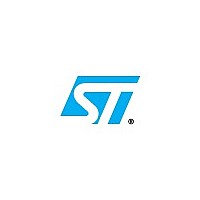ST72T331N2T6 STMicroelectronics, ST72T331N2T6 Datasheet - Page 40

ST72T331N2T6
Manufacturer Part Number
ST72T331N2T6
Description
8-bit Microcontrollers - MCU OTP EPROM 8K SPI/SCI
Manufacturer
STMicroelectronics
Datasheet
1.ST72T331N2T6.pdf
(107 pages)
Specifications of ST72T331N2T6
Product Category
8-bit Microcontrollers - MCU
Rohs
yes
Core
ST7
Data Bus Width
8 bit
Maximum Clock Frequency
16 MHz
Program Memory Size
8 KB
Data Ram Size
384 B
On-chip Adc
Yes
Package / Case
TQFP-64
Mounting Style
SMD/SMT
A/d Bit Size
8 bit
A/d Channels Available
8
Interface Type
SCI, SPI
Maximum Operating Temperature
+ 85 C
Minimum Operating Temperature
- 40 C
Number Of Programmable I/os
44
Number Of Timers
2
On-chip Dac
No
Program Memory Type
EPROM
Factory Pack Quantity
90
Supply Voltage - Max
5.5 V
Supply Voltage - Min
3.5 V
ST72E331 ST72T331
5.4 16-BIT TIMER
5.4.1 Introduction
The timer consists of a 16-bit free-running counter
driven by a programmable prescaler.
It may be used for a variety of purposes, including
measuring the pulse lengths of up to two input sig-
nals ( input capture ) or generating up to two output
waveforms ( output compare and PWM ).
Pulse lengths and waveform periods can be mod-
ulated from a few microseconds to several milli-
seconds using the timer prescaler and the CPU
clock prescaler.
Some ST7 devices have two on-chip 16-bit timers.
They are completely independent, and do not
share any resources. They are synchronized after
a MCU reset as long as the timer clock frequen-
cies are not modified.
This description covers one or two 16-bit timers. In
ST7 devices with two timers, register names are
prefixed with TA (Timer A) or TB (Timer B).
5.4.2 Main Features
The Block Diagram is shown in
*Note: Some timer pins may not be available (not
bonded) in some ST7 devices. Refer to the device
pin out description.
When reading an input signal on a non-bonded
pin, the value will always be ‘1’.
40/107
40
– 2 dedicated 16-bit registers
– 2 dedicated programmable signals
– 2 dedicated status flags
– 1 dedicated maskable interrupt
– 2 dedicated 16-bit registers
– 2 dedicated active edge selection signals
– 2 dedicated status flags
– 1 dedicated maskable interrupt
Programmable prescaler: f
Overflow status flag and maskable interrupt
External clock input (must be at least 4 times
slower than the CPU clock speed) with the choice
of active edge
Output compare functions with:
Input capture functions with:
Pulse Width Modulation mode (PWM)
One Pulse mode
5 alternate functions on I/O ports (ICAP1, ICAP2,
OCMP1, OCMP2, EXTCLK)*
CPU
divided by 2, 4 or 8.
Figure
1.
5.4.3 Functional Description
5.4.3.1 Counter
The main block of the Programmable Timer is a
16-bit free running upcounter and its associated
16-bit registers. The 16-bit registers are made up
of two 8-bit registers called high & low.
Counter Register (CR):
Alternate Counter Register (ACR)
These two read-only 16-bit registers contain the
same value but with the difference that reading the
ACLR register does not clear the TOF bit (Timer
overflow flag), located in the Status register (SR).
(See note at the end of paragraph titled 16-bit read
sequence).
Writing in the CLR register or ACLR register resets
the free running counter to the FFFCh value.
Both counters have a reset value of FFFCh (this is
the only value which is reloaded in the 16-bit tim-
er). The reset value of both counters is also
FFFCh in One Pulse mode and PWM mode.
The timer clock depends on the clock control bits
of the CR2 register, as illustrated in
value in the counter register repeats every
131072, 262144 or 524288 CPU clock cycles de-
pending on the CC[1:0] bits.
The timer frequency can be f
or an external frequency.
– Counter High Register (CHR) is the most sig-
– Counter Low Register (CLR) is the least sig-
– Alternate Counter High Register (ACHR) is the
– Alternate Counter Low Register (ACLR) is the
nificant byte (MS Byte).
nificant byte (LS Byte).
most significant byte (MS Byte).
least significant byte (LS Byte).
CPU
/2, f
CPU
Table
/4, f
1. The
CPU
/8













